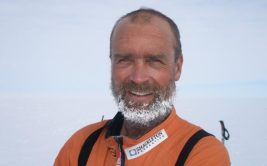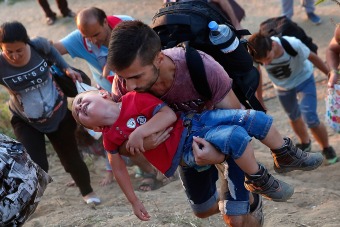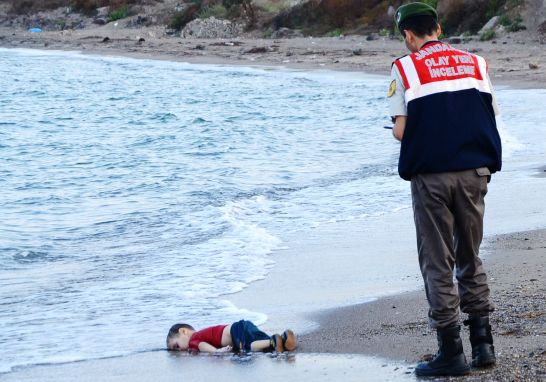A journey of a thousand miles begins with a single step. – Lou Tsu.
One hundred years after Imperial Edwardian Arctic explorer Ernest Shackleton’s fatal expedition to walk across Antarctica, coast to coast, Henry Worsley – an ex- British Army officer died in his solo attempt to replicate and complete Shackleton’s adventure.

Ernest Shackleton and his doomed ship the Endurance.
At the turn of the last century the British Empire had touched every corner of the world but Shackleton, Captain Scott and many other Edwardian explorers wanted to expand that reach across Antarctica. In 1911 Royal Navy Captain Robert Falcon Scott failed in his attempt to be the first man to reach the South Pole, beaten to the goal by Norwegian Roald Amundsen. It was a devastating blow for Scott, seeing the Norwegian Flag standing proud and flapping at the Southern axis of the planet.
In disastrous weather conditions Scott and his team began the return journey only to

Scott and his team stand proudly but disappointed beside the Norwegian Flag at the South Pole.
perish on the icey wastes of the uncharted continent. One of the team, Lawrence Oats, suffering from gangrene, left their tent, without his boots, and in just his socks walked to certain death in a blizzard of minus 40 degrees.
He did this so as not to be a burden on the rest of the team. Stepping through the tent flap he famously remarked “…..I am going out now, I may be some time” and was never seen again.
In British mythology, Shackleton was always outshone by “Scott of the Antarctic” and by Oats’s act of self-sacrifice, but he was an heroic man, who through sheer determination and bravery, managed to save many of his men trapped on the ice when they all became  stranded with little food by pack ice just short of their attempt to traverse the continent from coast to coast. Their ship had been crushed by floating pack ice, and they huddled in their poorly supplied tents hoping the weather would improve. Shackleton took two men and rowed across the perilous South Atlantic in an open-top boat to the settlement of South Georgia on the Falklands Islands and brought help back to his team. He died shortly afterwards of a heart attack and was buried on South Georgia.
stranded with little food by pack ice just short of their attempt to traverse the continent from coast to coast. Their ship had been crushed by floating pack ice, and they huddled in their poorly supplied tents hoping the weather would improve. Shackleton took two men and rowed across the perilous South Atlantic in an open-top boat to the settlement of South Georgia on the Falklands Islands and brought help back to his team. He died shortly afterwards of a heart attack and was buried on South Georgia.
Henry Worsley wanted to complete the unfinished expedition of his Hero Ernest Shackleton by walking across the entire continent, via the South Pole. Like Scott and Shackleton, Henry was a military man; serving as Commanding Officer of the 2nd Battalion, The Royal Green Jackets. He became the “first man into Helmand” when in

Lieutenant Colonel Alastair Edward Worsley
2006 he went without body armour to meet Imams and Elders before the arrival of the UK task force in Afghanistan. He had covered 913 miles over 71 days on his own, when just 30 miles short of his goal, he had to call for help after succumbing to exhaustion and severe dehydration. His secondary goal was to raise £100,000 for a charity caring for Army veterans. He is continuing to surparse that target.
Worsley enjoyed all the modern aides of navigation and communication, the latest in protective clothing. Reaching out to his supporters through Facebook, Twitter and live streaming to the internet. He uploaded a daily audio diary of his extraordinary solo journey. In his last broadcast, sent from Antarctica, he told supporters: “When my hero, Ernest Shackleton, was 97 miles from his goal on the morning of January the 9th 1909, he said he’d shot his bolt.
“Well, today I have to inform you with some sadness that I too have shot my bolt.” He described how he could no longer push one ski in front of the other. “My summit is just out of reach.”

A Worsley selfie alone on the Ice
He radioed for help and was airlifted to a hospital in Chile where he died. Run down and exhausted he had contracted internal infections that overwhelmed his immune system.
A sad end to a remarkable life. He was later burried close to Shakleton’s grave on South Georgia.
Whilst Shackleton was attempting his trans-continental trek, WW1 was in full swing. Likewise, during Worsley’s seventy-one days on the tundra another war was, and is, raging in Syria and as a consequence there were so many others who walked nearly a thousand miles.
Syrian and Iraqi refugees, have in their thousands, made that great walk, not out of choice

Syrian Refugees walking a thousand miles.
or of adventure, but to escape the ravages of war, persecution, terrorism and barbarism.
True – the environment along the way was kinder to them, but still there were huge and challenging hazards on the journey. Handing their meagre savings over to people traffickers pimping over-filled and unsound boats then razor wire, transit camps, political tensions rapidly alternating between welcome and hostility; when all they wanted to do was to find refuge from the violent storm rampaging their beloved homelands. Like so many berfore them, they have become part of that ebb and flow of displaced people walking in the foot steps of others before them.
 One thousand miles they have travelled, enough to cross the Antarctic continent. But they have not reached their summit. Stuck in a kind of limbo, their futures are at the mercy of the political environment they find themselves in. The milk of human kindness pouring out of Europe is now drying up. Who together with the Near and Middle East is no stranger to mass displacement of people, but the European Union has, it seems, “shot it’s bolt” and is in danger of coming apart at the seams as many member states retreat from the problem behind their borders edged by razor wire.
One thousand miles they have travelled, enough to cross the Antarctic continent. But they have not reached their summit. Stuck in a kind of limbo, their futures are at the mercy of the political environment they find themselves in. The milk of human kindness pouring out of Europe is now drying up. Who together with the Near and Middle East is no stranger to mass displacement of people, but the European Union has, it seems, “shot it’s bolt” and is in danger of coming apart at the seams as many member states retreat from the problem behind their borders edged by razor wire.
These reluctant refugee explorers of the unknown may not know the outcome of their expeditions for a long, long time to come. Perhaps it will be the children who will eventually finish their family’s journey.
Will they ever be able to go home? Who knows? But in the meanwhile; we in Europe must give them shelter from the storm.
It may be some time.

GRAPHIC CONTENT A Turkish police officer stands next to a migrant child’s dead body off the shores in Bodrum, southern Turkey, on September 2, 2015 after a boat carrying refugees sank while reaching the Greek island of Kos. Thousands of refugees and migrants arrived in Athens on September 2, as Greek ministers held talks on the crisis, with Europe struggling to cope with the huge influx fleeing war and repression in the Middle East and Africa. AFP PHOTO / Nilufer Demir / DOGAN NEWS AGENCY = TURKEY OUT =


One heck of a task, to cross the frozen wastes. And slightly crazy to attempt it but in good faith by Worsley. Even with todays technology/ clothing it’s still formidable.
I love the advert for ‘Men Wanted’, something we’d never see nowadays.
And great about me also 🙂
It is sad to put a ‘like’ to these stories but we must face, and when possible deal with, the courage and tragedy of others although we sit warm and comfortable at home.
Reblogged this on Val Poore and commented:
A very interesting but also moving post about human endeavour, endurance and tragedy.
Thank you Val for the re-blogg. This is the 2nd time in 2 years this has happened – most honoured. Glad that it is this posting as I feel this is a terrible situation and needs some kind words rather than resentment.
Great post Bill. I love the way you tied Shackleton’s and Worsley’s sojourns in with those of the Syrian refugees. I second your sentiments about doing everything we can to help them. There is no better way of articulating our core values than helping those who are often seen as not sharing them.